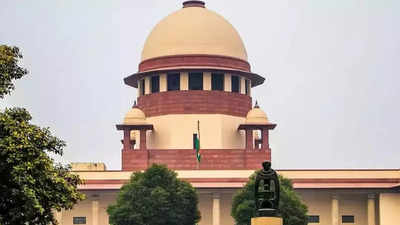NEW DELHI: The Supreme Court on Friday declined to hear a PIL that sought to abolish the tax deducted at source (TDS) system under the Income Tax Act, noting that such deductions are standard practice.
The bench, led by Chief Justice Sanjiv Khanna and Justice Sanjay Kumar, advised the lawyer petitioner Ashwini Upadhyay to present his case before the Delhi high court.
“Sorry we will not entertain it… It is very badly drafted. However, you can move the Delhi High Court,” the CJI stated, whilst noting that TDS is implemented in numerous countries, PTI reported.
The petition, submitted through advocate Ashwani Dubey, aimed to eliminate the TDS system, describing it as “arbitrary and irrational” and in violation of several fundamental rights, including equality.
The challenge targeted the TDS structure within the Income Tax Act, which requires tax to be deducted by the payer during payment and subsequently deposited with the income tax department. This deducted amount is later adjusted against the payee’s tax obligations.
The Centre, ministry of law and justice, law commission, and NITI Aayog were named as parties in the petition.
The plea urged the apex court to direct the NITI Ayog to consider contentions raised in the plea and suggest necessary changes in TDS system.
Law Commission should examine the legality of the TDS system and prepare a report within three months, it sought.
The petition said the system violated Article 14 by disproportionately burdening economically weaker sections and small earners who lack the capacity to navigate its technical requirements.
The plea while referring to Article 23 said the imposition of tax collection duties on private citizens amounted to forced labour, as per ANI.
“The regulatory and procedural framework surrounding TDS is excessively technical, often requiring specialised legal and financial expertise, which most assessees lack. The result is an unjust shifting of sovereign responsibilities from the government to private citizens without adequate compensation, resources, or legal safeguards,” it said.




